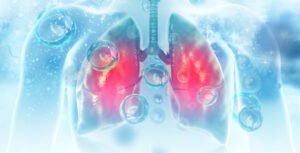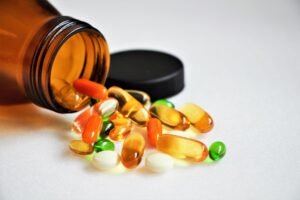Phenylalanine in Foods and Drinks_ What You Need to Know
Understanding Phenylalanine: A Vital Amino Acid
Phenylalanine is an essential amino acid that your body requires to build proteins. It cannot be synthesized by the body, so it must be obtained through your diet. When consumed, phenylalanine is converted into another amino acid called tyrosine, which is necessary for producing vital brain chemicals like dopamine, norepinephrine, and epinephrine. These chemicals help regulate mood, alertness, and the body’s response to stress.
Where Is Phenylalanine Found?
Phenylalanine is present in a variety of foods, particularly those high in protein. These include both animal-based and plant-based sources. Here’s where you can find it:
Animal-Based Sources of Phenylalanine:
-
Meat and Poultry
-
Fish
-
Eggs
-
Dairy Products: Milk, cheese, yogurt
Plant-Based Sources of Phenylalanine:
-
Beans and Chickpeas
-
Lentils
-
Nuts and Seeds
-
Soy Products: Tofu, tempeh, edamame
-
Whole Grains: Oats, quinoa, rye, barley, wheat germ
-
Spirulina (plant algae)
-
Quorn (fungus-based protein)
Phenylalanine in Processed Foods
In addition to its natural presence in foods, phenylalanine can also be found as a byproduct in some processed items or deliberately added for specific purposes. A common example is aspartame, an artificial sweetener used in “diet” or “light” food and beverages. Aspartame consists of phenylalanine and aspartic acid. You may also find phenylalanine added to protein powders or snacks, as it is an amino acid commonly found in protein-rich products.
Health Benefits of Phenylalanine
Phenylalanine is an essential nutrient in your diet, but in some cases, supplements may be beneficial. Here are some scenarios where additional phenylalanine might be considered:
Mental Health Support
Phenylalanine is crucial for producing brain chemicals like dopamine and norepinephrine, which regulate mood and mental clarity. Some people may use phenylalanine supplements to help manage symptoms of depression or improve their mood.
Pain Management
There has been research into phenylalanine’s potential role in pain control, particularly in chronic conditions like arthritis. It is believed that phenylalanine can affect brain chemicals related to pain signaling, offering some relief.
Skin Health
Phenylalanine may help in the treatment of skin conditions such as vitiligo, which causes skin pigmentation loss. Phenylalanine is a precursor to melanin, the pigment responsible for skin color.
Protein Synthesis and Muscle Repair
Athletes and bodybuilders may consider phenylalanine supplements as part of their amino acid intake for muscle growth and recovery. However, the scientific evidence supporting its effectiveness is still limited.
Safety Considerations: Phenylketonuria (PKU)
For most people, phenylalanine is safe when consumed as part of a balanced diet. However, individuals with a rare genetic disorder called phenylketonuria (PKU) must carefully monitor their phenylalanine intake. PKU affects the body’s ability to process phenylalanine, leading to a dangerous buildup in the blood. If left untreated, high levels of phenylalanine can result in:
-
Seizures
-
Cognitive delays
-
Behavioral issues
-
Mental health disorders
PKU is typically diagnosed shortly after birth through newborn screening, allowing for early intervention. People with PKU must follow a strict low-phenylalanine diet, avoiding high-protein foods like meat, dairy, and certain grains. Aspartame, commonly found in diet sodas and sugar-free products, should also be avoided.
Monitoring and Managing Phenylalanine Levels
Those with PKU need to regularly monitor their phenylalanine levels through blood tests. Diet adjustments and, in some cases, tyrosine supplements may be necessary to maintain proper amino acid balance and support brain health.
How to Support Amino Acid Production
The best way to ensure your body receives all the amino acids it needs, including phenylalanine, is to maintain a protein-rich diet. Here are some great sources of protein:
-
Dairy Products: Milk, yogurt, cheese
-
Eggs
-
Meat and Poultry
-
Legumes: Beans, peas, lentils
-
Nuts and Seeds
-
Soy Products: Tofu, tempeh
-
Whole Grains: Quinoa, oats, barley
Conclusion: Phenylalanine and Your Diet
Phenylalanine is an essential amino acid that plays a key role in protein synthesis and brain function. For most people, it is easy to get enough phenylalanine from a varied diet rich in protein. However, individuals with PKU must carefully monitor their intake to avoid serious health complications. If you have PKU or are considering phenylalanine supplement
💡 Frequently Asked Questions
⭐ Expert Tips
- Include seasonal or trendy variations to keep your meals exciting.
- Highlight prep shortcuts or time-saving techniques for busy cooks.
- Consider dietary restrictions and include substitution suggestions.
✅ Key Takeaways
- These dinner ideas are perfect for impressing guests or enjoying special occasions.
- Choose recipes that match your skill level and available kitchen tools.
- Presentation and taste both contribute to a memorable dining experience.
📣 Join Our Community
Want more inspiration like this? Subscribe to our newsletter for weekly dinner ideas and cooking tips!



